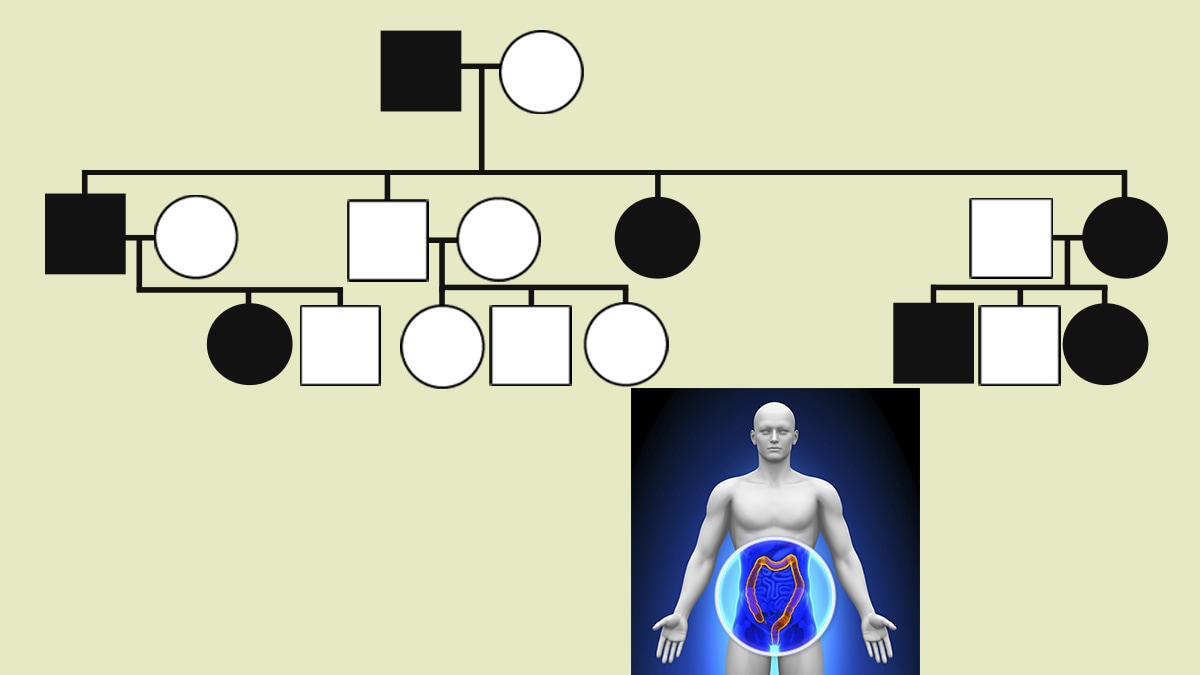Key points
- Having a family health history of Lynch syndrome makes you more likely to have Lynch syndrome yourself.
- Tell your healthcare provider if you have a family health history of Lynch syndrome or Lynch syndrome-related cancers, such as colorectal (colon), uterine (endometrial), ovarian, and stomach cancers.

Overview
Having a family health history of Lynch syndrome makes you more likely to have Lynch syndrome yourself. If someone in your family has been diagnosed with Lynch syndrome, share this information with your healthcare provider. Your healthcare provider may refer you for genetic counseling or genetic testing. If you have Lynch syndrome, let your family members know. Note that not all inherited colorectal cancers are due to Lynch syndrome, and not everyone with Lynch syndrome will get colorectal cancer.
What is Lynch syndrome?
People at increased risk
Lynch syndrome is hereditary, meaning that it is caused by an inherited genetic change, or mutation, that can be passed from parent to child. If you have Lynch syndrome, your parents, children, sisters, and brothers have a 50% chance of having Lynch syndrome. Once a genetic change that causes Lynch syndrome is found in one person in a family, other members can then be tested for that genetic change to find out if they have Lynch syndrome.
Tell your healthcare provider if you have any of the following:1
- A family member with Lynch syndrome
- A first-degree relative (mother, father, sister, brother, or child) with colorectal or uterine (endometrial) cancer diagnosed before age 50
- A first-degree relative with colorectal or uterine (endometrial) cancer and another Lynch syndrome-related cancer either occurring at the same time or at a different time. Lynch syndrome-related cancers include the following:
- Colorectal (colon)
- Uterine (endometrial)
- Ovarian
- Stomach
- Small intestine
- Urinary tract (kidney, ureter, bladder)
- Biliary tract (liver, gall bladder, bile ducts)
- Pancreatic
- Prostate
- Brain
- Some skin cancers
- Colorectal (colon)
- Two or more first- or second-degree relatives (grandparents, half-siblings, aunts, uncles, nieces, and nephews) with Lynch syndrome-related cancers, with at least one that was diagnosed before age 50
- Three or more first- or second-degree relatives with Lynch syndrome-related cancers at any age
Next steps
If you need help getting started, visit My Family Health Portrait.
If you have a family history of Lynch syndrome, your healthcare provider may recommend genetic counseling.
- National Comprehensive Cancer Network. NCCN Guidelines Version 2.2023 Genetics/Familial High-Risk Assessment: Colorectal.
